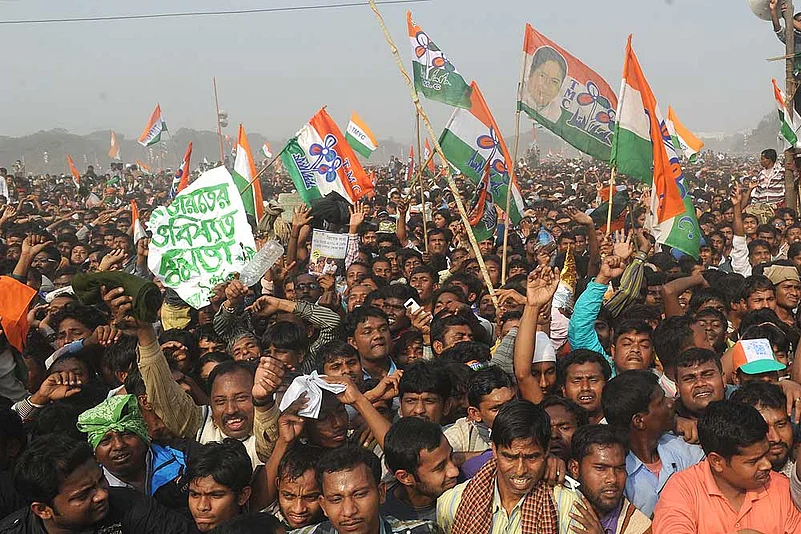Soon there will be a vacuum in your life. This will be around May 21, once the TV shows stop doing post-election analysis. The Election Express will be hired out to marriage parties. The Election Commission will turn back into a pumpkin. The statisticians will get busy with IPL. Priyanka Gandhi will vanish from our lives. At this point, you will find an empty space within you where the election used to be. Open this book then. It could help you fill it.
This book tells you the story of an election. Jay is a 50-year-old systems administrator in the US. During the course of one week, he loses his wife and his job, starts smoking again, and flies back to Delhi, hoping to make a fresh start. His old school friend Raja, former minister for renewable energy, finds himself sidelined by his party after he has a shoe chucked at him. He wants Jay to stand as his proxy in Narayanpore, a rural seat in West Bengal. Jay’s parents disapprove, so he agrees immediately. He almost wrecks his campaign right at the outset by admitting that he hates Rabindrasangeet—songs written and composed by Tagore, to be sung and heard with a divine expression. This is totally unacceptable, but Jay quickly redeems himself, thanks to Google and a BSNL 2G connection. Soon, he is spouting culture with the best of them.
We meet his competitors one by one. Malini Devi is a former cabaret artist turned mythological icon, who wants to bring villagers the benefits of hot yoga and slut walks. Professor Dasgupta is an iconic economist who has been unfairly passed over for the Nobel prize. Another candidate is a former match-fixer who now plays for kkr. It turns out to be a long campaign, and our hero faces many challenges, including the revelation that his wife has run away. Luckily, he’s not the only one facing problems. Malini Devi’s dog tries to hump the leg of a reporter from Ganashakti. Her rivals circulate a dance number from early in her career, called ‘I want someone to come behind me’. Professor Dasgupta is sabotaged repeatedly. His enemies keep stealing his dentures, thus rendering his speeches unintelligible. Former match-fixer Salman Sheikh is discovered to be on the verge of betraying kkr, and joining a new IPL team, the wonderfully named Kashmir Curfew, simply because they offered him more money. This introduction of sordid commercial motives into the IPL shocks everyone.
Jay learns the ropes as he goes along. We learn a lot too. We learn that in middle-class Bengali households, the Gelusil is always kept close to the dining table. We learn how to distinguish between ‘proper people’ and ‘small people’. We learn that all Bengali politicians are constantly striving towards that pinnacle of achievement—becoming Union railway minister. We learn that the average net worth of an MP in modern India is `5 crore—which means all of them are millionaires.
I make this book sound like a breezy comedy, but it’s not. It is much more carefully considered. It reflects very closely the actual pace of an election campaign, with long stretches of boredom punctuated by sudden bursts of action. You get a clear picture of rural Bengal, with its red clay and woven roofs and naked children. The complete absence of Mamata Banerjee was a disappointment, though. It seems wrong to do a comedy set in Bengal and completely ignore her. I kept hoping she would make an appearance, but she never did. Perhaps it was fear. This is perfectly understandable. Forget Didi, even old boy Derek looks distinctly menacing these days. I would obey him without question.
If I had to quibble, I would say that Bengal politics is actually a lot nastier than this. Most party workers are not cute bumblers. But this is a light-hearted comedy, not The Brothers Karamazov, so we should probably forgive him. It’s a feelgood book with a happy ending. It’s also full of nuggets that only a journalist would know. One fact in particular keeps me awake at night. Who was the PM who maintained a harem at 10, Race Course Road? I’ve been trying to figure it out, but my mind is boggling. Come on, Anirudh. Dropping hints is not good enough. The nation wants to know.
(Shovon Chowdhury is the author of The Competent Authority.)

























